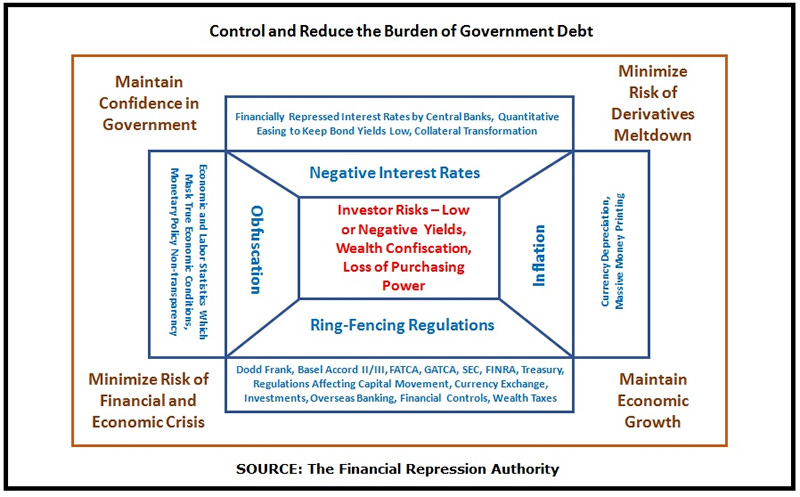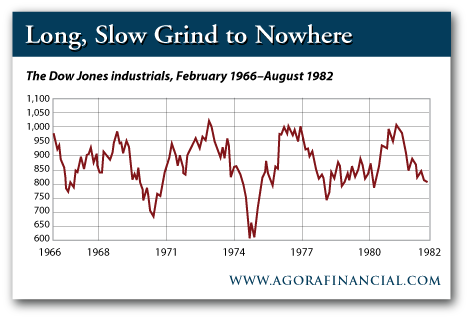
Blog
 04/22/2024 - FamilyOffice Podcast with Leon Cooperman
04/22/2024 - FamilyOffice Podcast with Leon Cooperman

 04/22/2024 - CedarOwl – Full Special Report on Dr. Marc Faber
04/22/2024 - CedarOwl – Full Special Report on Dr. Marc Faber

Link here to the Full Report on Dr. Marc Faber for free
Become a free subscriber by entering your email address in the form below:
 04/18/2024 - Get to Know the CedarOwl
04/18/2024 - Get to Know the CedarOwl

Check out our latest posting – Get to Know the CedarOwl … .. learn about how and why we take an approach based on the Principles of the Austrian School of Economics .. also learn the 4 Principles of Market Environmentalism – what these principles are and how they can be used to identify Positive Ideas to help the environment that make not only environmental sense but also financial sense and economic sense! .. also be sure to read the latest views and thoughts of one of our top 10 Most Admired Advisors (MAA) – Dr. Marc Faber – posting will be published tomorrow Friday Apr 19 at 3pm ET and be available fully free to all subscribers!
 04/17/2024 - Louis-Vincent Gave and David Hay on the Coming Rebound of Inflation and Market Implications
04/17/2024 - Louis-Vincent Gave and David Hay on the Coming Rebound of Inflation and Market Implications

 04/17/2024 - CedarOwl – Russell Napier. Twenty One Lessons from Financial History for the Way We Live Now.
04/17/2024 - CedarOwl – Russell Napier. Twenty One Lessons from Financial History for the Way We Live Now.

April 15, 2024
This is a timeless lecture by Russell Napier. It is also applicable to the current economic and investing environment. Russell goes through twenty-one lessons from financial history. Download all the slides – link here.
- Spend as much time analyzing supply as you spend analyzing demand – the China impact.
- There is no relationship between GDP growth and the return from equities – price is what you pay and value is what you get.
- Pepper’s law – estimate how long the unsustainable can be sustained – double it and take off a month.
- ‘Never, ever think about anything else when you should be thinking about incentives’- Charlie Munger.
- Governments like markets only when they deliver the prices they want governments do suspend market prices.
- The ratio of corporate profits to GDP ratio must mean revert in a free society- one way to do this is inflation.
- In assessing the appropriateness of monetary policy assess both the price of money and the quantity of money – banks make money.
- The most dangerous form of speculation is the search for yield- ‘John Bull can stand many things but he cannot stand 2%’ Walter Bagehot.
- The real danger for investors from populism depends upon the strength of the constitution and the rule of law.
- The countries most likely to default on their debt are those that have defaulted on their debt- institutions count.
- High equity valuations fall slowly when the surprise is inflation and quickly when it is deflation – our current repression creates a slow decline.
- Never buy emerging market equities if the exchange rate is overvalued- an exchange rate policy is a monetary policy.
- Tourism is the best guide to whether an exchange rate is over-valued or under-valued always visit to Rockefeller Center at Christmas.
- Always buy equites below 10X CAPE unless the future holds – communism, war or a surrender of monetary independence with an overvalued exchange rate.
- Democracy is more suited to the operation of capital controls than the free movement of capital.
- When private savings are exhausted monetization of government debt and high inflation/hyperinflation follow – savings are not yet exhausted if conscripted.
- Technology never ultimately defeats inflation.
- Monetary systems fail about every 30 years – the rules of the old system leave a legacy of bad habits for those in a new system.
- Money is almost always in disequilibrium.
- Never trust a forecast with a decimal point-especially your own.
- Extrapolation is the opiate of the people.
- CedarOwl Commentary – Some interesting points and observations:
- Russell’s biggest theme is on the risks of financial repression – in many of the lessons he discusses in this presentation, he provides ideas to minimize these risks – jurisdictional-focused investing, diversification in asset classes, holding some gold and certain equities to preserve purchasing power, investing in jurisdictions where the rule of law and respect for property rights is strong and maintained, emphasizing equities versus bonds to minimize capital being forced to fund unsustainable reckless-spending governments.

- Thinks best to look for undervalued equities in emerging markets where currencies are not overvalued, instead of holding stagnant developed-world overvalued equities likely to go no where (or even losing purchasing power in real terms) in a manner similar to what happened to equities between 1966 to 1982.


- Sees a massive disequilibrium, a result of the monetary change in the world today – will likely result in liquidity going to emerging markets, driving emerging market currencies stronger in general. Advises to look for value-based equities in emerging markets instead of growth equities in the indebted western world.
- Observes on the variation of the famous Karl Marx quote of “Religion is the opiate of the people” that extrapolation is really the danger as the opiate of the people. Also known as recent bias. Just because the western world countries have led economic growth and enhancement in the standard of living over the past several decades since World War II – does not mean that this trend will go on forever. The western world countries are now heavily indebted, finding it increasingly difficult to even make the minimum payments on servicing their existing unsustainable government debt levels.
Become a free subscriber by entering your email address in the form below:
 04/11/2024 - CedarOwl – Dividend-Paying Companies We Invest In – April 2024 Edition
04/11/2024 - CedarOwl – Dividend-Paying Companies We Invest In – April 2024 Edition

Become a free subscriber by entering your email address in the form below.
Here are just a few of the crowning qualifications that gave us the green-light to feature today’s pick on the first of our monthly series:
- This company currently pays about 15% dividend yields.(from stockcharts.com and investing.com)
- In addition to dividend distributions, this company shows a potential for capital appreciation, making them potentially promising for both short and long-term strategies.
- This company’s business model is currently based on assets in an underinvested, undervalued jurisdiction.
- This company deploys great sustainability programs and initiatives.
- This company strives towards international-based environmental certification on their assets.
- This company is currently leveraging digitalization technologies for growth and operational efficiencies, supportive of UN SDGs 8, 9 & 16.
- This company has over 20 years of proven, stable growth since it started in 1991.
- This company is publicly listed on two exchanges for ease of access.
Next up, let’s introduce today’s company pick and explore an up-to-date fundamental and technical analysis on its equity share price. Introducing …
Become a free subscriber by entering your email address in the form below:
 04/08/2024 - The Roundtable Insight – Legendary Investors Chris Wood and Yra Harris on Gold, Geo-Political Risks, and the Global Financial Markets
04/08/2024 - The Roundtable Insight – Legendary Investors Chris Wood and Yra Harris on Gold, Geo-Political Risks, and the Global Financial Markets

Download the podcast in voice format MP3 here
 04/05/2024 - Larry McDonald on MacroVoices – How To Listen When Markets Speak
04/05/2024 - Larry McDonald on MacroVoices – How To Listen When Markets Speak

 04/05/2024 - The Roundtable Insight – Charles Hugh Smith on Four Thematic Challenges Causing Economic and Social Dysfunction – and Solutions
04/05/2024 - The Roundtable Insight – Charles Hugh Smith on Four Thematic Challenges Causing Economic and Social Dysfunction – and Solutions

 04/05/2024 - CedarOwl: Most Admired Advisors (MAA) Views and Perspective on Finance, the Economy & Global Markets – April 2024
04/05/2024 - CedarOwl: Most Admired Advisors (MAA) Views and Perspective on Finance, the Economy & Global Markets – April 2024

 04/04/2024 - Adam Rozencwajg – $15,000 Gold, $125 Uranium, $0 Lithium – on Resource Talks
04/04/2024 - Adam Rozencwajg – $15,000 Gold, $125 Uranium, $0 Lithium – on Resource Talks

 04/04/2024 - CedarOwl – Introducing the Most Admired Advisors (MAA) – views and perspective of our Top 10 financial advisors, fund and asset managers
04/04/2024 - CedarOwl – Introducing the Most Admired Advisors (MAA) – views and perspective of our Top 10 financial advisors, fund and asset managers

If you’ve been searching for a trustworthy monthly pocketbook of trends and insights on the economy and financial markets, this new, recurring segment is for you.
Introducing ‘Most Admired Advisors’ (MAA) by CedarOwl – a monthly report featuring a global top-10 roster of financial advisors, fund and asset managers. We source and cite a distillation of their current, relevant sentiments on trends in the economy and financial markets as a reliable source of insights for our readers.
Our MAA roster is reassessed monthly and stacked against our values and analysis models so you can enjoy an ever-fresh perspective on our category’s thought leadership.
For each economist or manager, look forward to fulsome summary points and observations on their views and perspective on the economy, the financial markets, and their investment ideas.
All taken from publicly linked sources across the open web, including our partners at FRA Roundtable Insight Podcast.
We do the assessment, research and compilation work as a service to you.
Sign up below to become a free subscriber to CedarOwl:
 04/01/2024 - CedarOwl – Bloomberg Article: How the Nuclear Fusion Market Could Achieve at $40 Trillion Valuation
04/01/2024 - CedarOwl – Bloomberg Article: How the Nuclear Fusion Market Could Achieve at $40 Trillion Valuation

“Nuclear Fusion as a solution towards the sustainable, green vision that the world has been striving towards has been severely downplayed and relatively unknown. Yet, key players in the energy sector are advancing nuclear fusion technologies, preparing the world for its commercialization as an energy source, presenting potentially enormous investment opportunities. Does this make your hair stand on end? It should.
Read How nuclear fusion market could achieve a $40 trillion valuation, a Bloomberg report. ..
In today’s posting, we explore the current opportunity presented by the advancements in nuclear fusion as an energy source.
- What is nuclear fusion, and why has it been downplayed?
- Does nuclear fusion make environmental, financial and economic sense?
- What are our nuclear fusion investment strategies that leverage key players advancing the technologies, that can help us attain outperforming return on investment (ROI)?”
Link Here to the CedarOwl substack posting on nuclear fusion
 03/30/2024 - Frank Giustra & Pierre Lassonde on Gold, Macroeconomics, Geopolitical Threats, and Why Canada is Failing
03/30/2024 - Frank Giustra & Pierre Lassonde on Gold, Macroeconomics, Geopolitical Threats, and Why Canada is Failing

 03/30/2024 - The Rise And Fall Of The Age Of Debt | Russell Napier
03/30/2024 - The Rise And Fall Of The Age Of Debt | Russell Napier

 03/30/2024 - Louis-Vincent Gave on “What the Fed Did Next”
03/30/2024 - Louis-Vincent Gave on “What the Fed Did Next”

“Looking at copper, gold, bitcoin, the US dollar and others, it increasingly looks as if the market has already decided. The fear of losing the dinner party invites is stronger than the fear of getting a bad rap in the history books. In any case, over the last few years the new motto of public life in Western democracies seems to have become “Après moi, le déluge.” Why expect a change now? The market is likely right to expect an easy Fed—and to position itself for reflation.”
 03/28/2024 - CedarOwl – How We are Investing in Green and Clean Nuclear Fusion Energy
03/28/2024 - CedarOwl – How We are Investing in Green and Clean Nuclear Fusion Energy

Nuclear Fusion as a solution towards the sustainable, green vision that the world has been striving towards has been severely downplayed and relatively unknown. Yet, key players in the energy sector are advancing nuclear fusion technologies, preparing the world for its commercialization as an energy source, presenting potentially enormous investment opportunities. Link to Bloomberg’s article on Nuclear fusion market could achieve a $40 trillion valuation. Does this make your hair stand on end? It should.
CedarOwl’s goal is to shine a light on innovative and profitable answers to the question: How can our global society transition into a silver-lined, sustainable future through technological advancement, idea sharing and investment?
In today’s posting, we explore the current opportunity presented by the advancements in nuclear fusion as an energy source.
- What is nuclear fusion, and why has it been downplayed?
- Does nuclear fusion make environmental, financial and economic sense?
- What are our nuclear fusion investment strategies that leverage key players advancing the technologies, that can help us attain outperforming return on investment (ROI)?
How Does Nuclear Fusion Energy Stack Up?
Industry experts including Doomberg and Goehring & Rozencwajg Associates have highlighted the challenges of the traditional so-called “green” renewable energies of wind and solar in being able to provide green and clean energy:
- Low Energy Return On Investment (EROI) – how much energy is required to generate a unit of usable power output – as wind is generally in the 10-to-1 range and solar is generally in the 5-to-1 range, compared to oil/gas/fossil fuels in generally the 30-to-1 range and nuclear fission in generally the 100-to-1 range
- Difficulties in sufficiently scaling to meet demands of current and future energy requirements globally – on required sizes, costs and commodity input availabilities
- Rising finance costs on wind and solar projects due to rising interest rates and inflation
- Declining abilities by heavily indebted governments looking to finance wind and solar projects, especially in the indebted western world characterized by unsustainable government debt and unfunded liabilities
And then there is also nuclear energy. There are two forms – nuclear fission and nuclear fusion.
Nuclear fission energy is available today, is scalable, has relatively high EROI and can be built economically. A reasonable energy transition strategy – towards lowering carbon emissions and migrating away from fossil fuels – is using a mix of all of the above and other developing energy sources, and has been identified by various industry experts including Doomberg – we fully promote this approach.
What about nuclear fusion? What is nuclear fusion energy, how is it different from nuclear fission energy, and why would it make sense to pursue its commercial development? Can it make financial and economic sense?
Nuclear Fusion Energy – Its Bad Wrap

Doomberg is a leading write on the substack platform, providing a special focus on energy. Doomberg is very bullish on nuclear energy in general – here is a link to the nuclear related articles if you would like to deepen your dive on the subject.
Scientific American Journal differentiates nuclear fusion energy from nuclear fission energy:
“Nuclear fusion—the merging of light atomic nuclei—has the potential to produce energy with near-zero carbon emissions, without creating the dangerous radioactive waste associated with today’s nuclear fission reactors, which split the very heavy nuclei of radioactive elements.”

So far this year, European scientists have made key breakthroughs in record-breaking amounts of energy made with fusion energy, highlighting the advancement of the technology.
If nuclear energy is such a great solution, then why have seemingly inferior technologies taken the lead in this race?
Fusion is not Fission. They’re both forms of nuclear energy but one is vastly different than the other. Fission energy power plants of old are the source of attitudes stemming from images of meltdowns, toxic radioactive waste and nuclear bomb material proliferation – even though many of these concerns and risks have been largely mitigated through technology and added-value applications and uses.

This isn’t your daddy’s nuclear energy.
In any case, nuclear fusion energy does not pose these risks to the environment and communities.
Summary of Advantages of Nuclear Fusion Energy
Ian Chapman, CEO of the U.K. Atomic Energy Authority (UKAEA), the British government’s nuclear energy organization says we simply have no other long-term way of getting to net-zero carbon emissions, especially because the global energy demand is projected to triple between 2050 and 2100. “Fusion is essential” to meet that need.
Tony Donné, EUROfusion’s program manager says “I can’t see what else it will be” – renewables such as wind and solar energy definitely have a role to play, but they aren’t likely to be enough.
Advantages of nuclear fusion energy:
· Abundant energy: Fusing atoms together in a controlled way releases nearly four million times more energy than a chemical reaction such as the burning of coal, oil or gas and four times as much as nuclear fission reactions (at equal mass). Fusion has the potential to provide the kind of baseload energy needed to provide electricity globally.
· Millions of years: Fusion energy commodity inputs are highly abundant globally.
· No CO₂: Scientists, environmental groups and organizations identify the challenge of lowering carbon emissions resulting from human-generated activities globally. While the science is debatable behind to what extent carbon emissions is affecting climate, everyone agrees that is it is best to minimize or eliminate polluting effluents such as carbon emissions into the environment, whether in the air, land or water. As such, nuclear fusion energy doesn’t emit harmful substances like carbon dioxide or other greenhouse gases into the atmosphere.
· No long-lived radioactive waste: Nuclear fusion reactors produce no high activity, long-lived nuclear waste. The activation of components in a fusion reactor is anticipated to be low enough for the materials to be recycled or reused within 100 years, depending on the materials used in the “first-wall” facing the plasma.
· Limited risk of proliferation: Fusion doesn’t employ fissile materials like uranium and plutonium. There are no enriched materials in a fusion reactor like ITER that could be exploited to make nuclear weapons.
· No risk of meltdown: A Fukushima-type nuclear accident is not possible in a fusion energy device. It is difficult enough to reach and maintain the precise conditions necessary for fusion—if any disturbance occurs, the plasma cools within seconds and the reaction stops. The quantity of fuel present in the vessel at any one time is enough for a few seconds only and there is no risk of a chain reaction.
· Cost: The power output of the kind of fusion reactor would likely be similar to that of a fission reactor (i.e., between 1 and 1.7 gigawatts). As with many new technologies, costs will be more expensive at first, when the technology is new, and gradually less expensive as economies of scale bring the costs down. Some links exploring the costs – link here, link here and link here.
Paul Dabbar, former Under Secretary for Science at the Department of Energy, said fusion does have the potential to one day be an affordable power source.
“The fuel is hydrogen,” said Dabbar. “Hydrogen is the most abundant element in the universe, and also on Earth. You know our ability to use that for energy in theory should be quite cheap.”
Link here to a great discussion on some latest developments of fusion on Faster, Please! with Fusion Industry Association CEO Andrew Holland.
How We Invest in Nuclear Fusion Energy

At the site of the International Thermonuclear Experimental Reactor (ITER), a poloidal field coil undergoes testing. Six of these ring-shaped magnets will steer plasma within the experiment. Credit: Alastair Philip Wiper
The key consideration we take on investing in nuclear fusion energy is our investment approach.
Our approach to investing is based on the principles of a unique school of thought known as the Austrian School of Economics, emphasizing great, high free cash flowing businesses with little or no debt or manageable debt, elements of scarcity and innovation. Our research team has distilled a set of observable and assessable metrics from these principles – there are several studies indicating these metrics have correlation with equity market outperformance, thus providing us with a statistical edge towards portfolio outperformance, although not necessarily guaranteed.
Further we look to assessing the extent to which the great businesses identified are aligned with the principles of Market Environmentalism, a set of 4 principles emanating from the Austrian School of Economics, which overall provide a market-based approach to helping the environment and promoting the 17 UN Sustainable Development Goals (SDGs). We feel this approach provides a better highway to meeting the SDGs versus approaches based on agenda-based environmentalism or approaches which rely on controlling, taxing or outright restricting human behavior, freedoms or liberties.
Given our investment approach in general, we provide consideration to investing in nuclear fusion with an emphasis on these factors:
· We invest in businesses meeting our metrics-based analysis highlighted above and aligned with the principles of Market Environmentalism – businesses that have relatively low or manageable debt, high free-cash-flows from legacy business units, significant to be able to fund the investment into the development of fusion energy on a large scale, and at the same time targeting equity outperformance as a dual mandate
· We invest in businesses that conduct significant fusion energy development or have ownership in private-based fusion energy development companies
· We invest in businesses that provide engineering and support, commodity inputs or specialized products/services in fusion energy power development and operations
To this end, we have identified several public-exchange traded companies which meet the above set of criteria. Let’s have a look at them here ..
Subscribe and Upgrade to Paid Subscription to read the entire Posting:
Disclaimer: This information and material contained in this post is of a general nature and is intended for educational purposes only. Opinions expressed are subject to change without notice and are not intended as investment advice or to predict future performance. This post does not constitute a recommendation or a solicitation or offer of the purchase or sale of securities. Furthermore, this post does not endorse or recommend any tax, legal, or investment related strategy, trading related strategy or model portfolio. The future performance of an investment, trade, strategy or model portfolio cannot be deduced from past performance. As with any investment, trade, strategy or model portfolio, the outcome depends upon many factors including: investment or trading objectives, income, net worth, tax bracket, suitability, risk tolerance, as well as economic and market factors. Economic forecasts set forth may not develop as predicted and there can be no guarantee that investments, trades, strategies or model portfolios will be successful. All information contained in this post has been derived from sources that are deemed to be reliable but not guaranteed.
 03/24/2024 - Louis-Vincent Gave on the Importance of TikTok
03/24/2024 - Louis-Vincent Gave on the Importance of TikTok

“The US House of Representatives’ approval of a bill aimed at forcing China’s Bytedance to divest TikTok has implications in areas far beyond the future of the wildly popular video-sharing platform. In this short video interview, Louis Gave examines the potential consequences for media freedom, for US-owned big-tech platforms, and for foreign investment in the United States.”
 03/24/2024 - Climate: The Movie (The Cold Truth) – Supporting Market Environmentalism
03/24/2024 - Climate: The Movie (The Cold Truth) – Supporting Market Environmentalism

 03/23/2024 - CedarOwl – Introducing a new service – “We Invest in Positive Ideas”
03/23/2024 - CedarOwl – Introducing a new service – “We Invest in Positive Ideas”

CedarOwl: We are excited to very soon be able to offer you a service which we hope you will find to be of value to you. The service focuses on helping to answer these questions:
- What are the interesting trends in the economy and the financial markets?
- What are the interesting opportunities we are investing in?
- Who are the top 10 economists and asset managers – our Most Admired Advisors (MAA) – we think have the best insightful views and perspective on the economy, the financial markets, and interesting investment ideas? And can we summarize what these economists and asset managers are saying in publicly available articles, essays, reports and podcasts in a brief way, saving you time?
- What are interesting investing ideas we are using or considering for getting income and dividends? How are we targeting a portfolio with overall income yields of over 10%?
- Are there ways to promote the UN Sustainable Development Goals (SDG) to help society and the environment –
- which make environmental sense, financial sense and economic sense?
- which are aligned with the positives of human nature?
- which we are investing in?
The service will launch very soon within the next few weeks. You can subscribe today with your email address:
Disclaimer: The information and material provided (“Information”) on the CedarOwl substack is of a general nature and is intended for educational purposes only. Opinions expressed are subject to change without notice and are not intended as investment advice or to predict future performance. The Information provided does not constitute a recommendation or a solicitation or offer of the purchase or sale of securities. Furthermore, the Information does not endorse or recommend any tax, legal, or investment related strategy, trading related strategy or model portfolio. The future performance of an investment, trade, strategy or model portfolio cannot be deduced from past performance. As with any investment, trade, strategy or model portfolio, the outcome depends upon many factors including: investment or trading objectives, income, net worth, tax bracket, suitability, risk tolerance, as well as economic and market factors. Economic forecasts set forth may not develop as predicted and there can be no guarantee that investments, trades, strategies or model portfolios will be successful. All Information has been derived from sources that are deemed to be reliable but not guaranteed.











